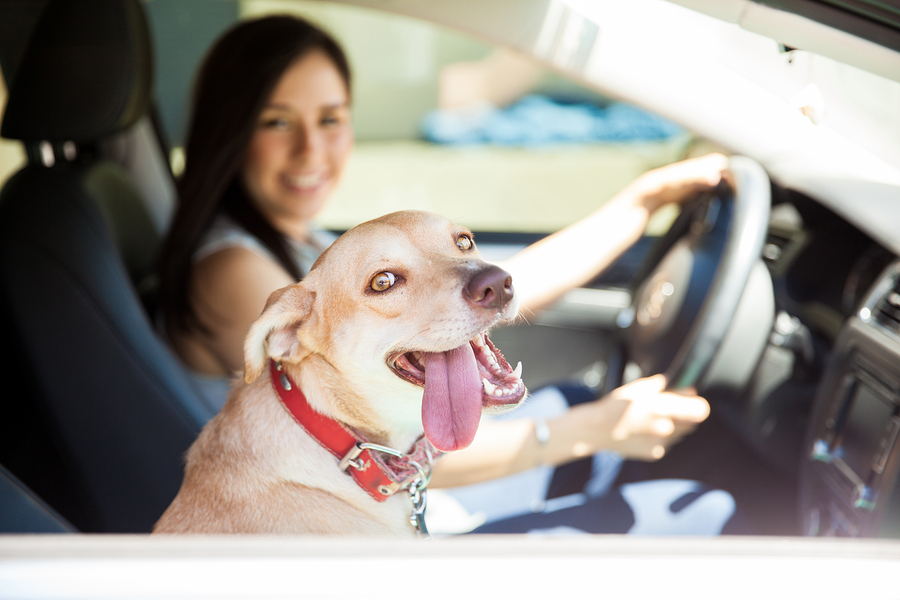Dr. Marty Becker, Founder of Fear Free
I start this message with the same positive thoughts and prayers most of us are extending to everyone we know and those we don’t. We worry about and cheer on first responders and human healthcare professionals. We don’t want small businesses to dip or die because of COVID, including veterinary practices both small and large.
We also thank God for the hidden blessings of COVID – and there are many. Family and friends who haven’t connected in years have reached out to each other and renewed their bonds. Neighbors are helping neighbors. Shelters are emptied by folks who’ve never fostered before. We’ve discovered that it’s entirely possible and possibly better (more efficient and less costly) to learn online.
People are discovering that their pets are greater than they even imagined, and are forming bonds to be celebrated, protected, and nurtured. Veterinary practices see that telemedicine can work, have discovered new efficiencies, and see just how important the emotional wellbeing of animals is. At Fear Free, we’ve seen explosive growth on our platforms for veterinary and pet professionals, animal shelters, and pet owners, which shows that when facing hardships and FAS, we lean in and nurture the things that are rock solid yet bear fruit: family, friends, faith, and our beloved pets.
Now for the lesson that can have immediate impacts with sustained ripples. COVID-19 has been the first season in recent history that has affected all the world’s populations at the same time. And just as seasons in nature bring dramatically different weather, seasons in life are when we tend to change habits – to use a gardening analogy, it’s when we re-pot ourselves. When you re-pot a perennial, you trim off the dead branches, thin out the center to get sunlight to the interior, put in fresh soil and fertilizer. As an example, I can’t tell you how many times I’ve watched friends (both personal and church friends) go through a divorce, then suddenly get fit, try new things, dress better, then read and recommend self-help books like The Road Less Traveled or the Five Love Languages to those of us who are still married, saying, “If I’d only known this before my marriage went south. You should read this so you don’t suffer what I have.” COVID-19 is a major season for vet med, and I believe it will make us adapt to needed changes in a short time period, allowing us to build to a better future.
What’s changed? Telemedicine has become a necessity for many practices. We’ve changed the traffic flows going in and out of the practice, including curbside drop-off and pick-up. (Fear Free has recommended that pet parents wait in the car with their pets for five years.) According to VetSuccess’s tracking of over 500 practices, revenues are only down by single digits as of the time this article was written, demonstrating that even with all of the hassles of pet guardians bringing pets to the vet, they still do..
In doing so, they have to trust us even more as they can’t see, hear, or smell what’s going on inside when their pet is examined. To support that trust, we’re using apps like ZipWhip to send photos of pets inside the practice to pet moms and dads. More vets/nurses are giving clients their mobile numbers to call them anytime if needed. (I’ve done this for years and can tell you that fewer than 1 percent of the people you give your mobile number to will call. Thousands of other vets who do this will tell you the same.)
There’s a term called the Teachable Moment. I can’t remember if I heard it from a mentor or read it in a book. What it refers to is the exact time when feedback is most effective. For example, if a new receptionist is flubbing price shopper calls, you don’t wait a month and then sit down and give them destructive criticism. Rather, right after you witnessed the call in question, you take them aside and go over the particulars of the call by giving them constructive feedback. Same with seeing a nurse do a great job with a difficult client. Don’t wait until annual review time to compliment them.
Here are five things I’m doing and would encourage you to consider doing as a result of COVID-19 and the opportunities it presents:
- The veterinarian who sees a pet should not only talk with the pet parent at the front end of the visit, but personally do callbacks for every client: one for routine things like vaccination; two for more complex procedures like skin issues, dentals, wounds; and three for major procedures such as complex dental extractions, orthopedics, or anything that requires anesthesia.
- The entire team should thank the client for making the effort to still get veterinary care for their pet in these challenging times. I often tell the pet while using a Zoom Groom hitting all the right places, “You have a mother who loves you very much. You’re such a lucky boy/girl.” Out of the corner of my eye, I see smiles.
- Clients how have the time to do things they formerly didn’t or thought they didn’t have time for. These include a robust weight loss program (working on both ends of the leash); conditioning or counter-conditioning a pet to have their feet handled, nails trim, and ears cleaned; switching from food bowls to food dispensing devices, and making sure to find and deploy enrichment activities unique for the species, breed, and individual.
- Ask clients to refer others to the practice. Many if not most practices suffer financially from the perception of clients that you and your practice are already too busy and you don’t want/need to be burdened with even more pet moms and dads coming in. We know the opposite. Over four decades of practice, I’ve found the following language works best: “If your visit here today was not just satisfactory but delightful, we’d deeply appreciate it if you would recommend us to other pet parents who are just like you.”
- Identify the top 100-500 clients in your practice and find ways to recognize and reward them for their dedication, loyalty, and love. Some things I’ve done for over four decades is to a) send them a holiday-like thank you card in July; b) give clients a turkey in July to have Christmas in July; c) give them coupons to a local ice cream or yogurt shop; d) buy them movie tickets; or e) perhaps best of all, give them a subscription to Happy Paws magazine. You can order it for them at magazine.store/happypaws for $10 with no shipping fee!
To learn more about how to be forward thinking, creative, adaptive, compassionate, efficient, and healthy (physically and emotionally) while delivering the kind of veterinary care that will have pet parents coming in more often and referring others to taste for themselves, watch Welcome Back to Business As Unusual: Practicing Tomorrow’s Veterinary Medicine Today on the Webinars page.
Brought to you by Virox Animal Health.






